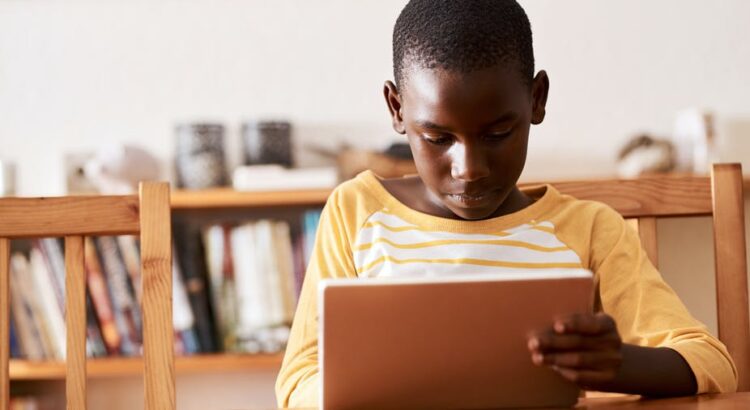Africa/Camerun/PrensaIE
Los sindicalistas docentes cameruneses han alertado al gobierno sobre el hecho de que regresar a la escuela el 1 de junio sin una preparación adecuada pondría en peligro a la comunidad educativa. Principalmente insisten en que se reduzca el número de alumnos por aula y se faciliten mascarillas y geles hidroalcohólicos.
Según Roger Kaffo, Secretario General del Syndicat National Autonome de l’Enseignement Secondaire (SNAES) y Secretario General Adjunto de la Fédération des Syndicats de l’Enseignement et de la Recherche —organización miembro de la Internacional de la Educación y de la cual es afiliado el SNAES— la forma en que las autoridades públicas han gestionado la crisis de COVID-19 no inspira confianza en absoluto.
Por ejemplo, lamenta que la comunicación del gobierno sobre el mapeo y la progresión de la pandemia siga siendo mínima. En particular, sostiene que los brotes de contagio no se han determinado con precisión y que las estadísticas relativas a las infecciones no son acordes a la realidad diaria que se vive en las principales ciudades de Camerún. Tampoco se ha determinado quién se va a hacer cargo de los enfermos, incluso cuando el sistema sanitario ya parece completamente desbordado.
Muchas preocupaciones sobre la salud del personal docente y el alumnado
En cuanto a la reapertura de las escuelas y los establecimientos educativos, ha señalado que todavía quedan muchas preguntas por responder: «Cuando llegue el 1 de junio de 2020, ¿las escuelas estarán desinfectadas? ¿Tendrán los estudiantes y docentes mascarillas, geles hidroalcohólicos, agua corriente y jabón? ¿Dispondrán las direcciones escolares de material para tomar la temperatura de todas aquellas personas que accedan a los establecimientos educativos? ¿Se adoptarán normas para que se respeten las medidas de prevención en las aulas y los campus?»
Aulas desbordadas, un problema persistente
Por otro lado, Kaffo ha señalado que «el caos que estamos observando parece ir a la par de una gran falta de sentido común», ya que en un principio se dijo a los directores de los establecimientos educativos que organizasen clases de 24 estudiantes para contribuir a reforzar el distanciamiento social, pero como los establecimientos de secundaria de las grandes ciudades no pueden organizar clases de 24 alumnos debido a la falta de aulas —algunos necesitarían entre 40 y 50 aulas más— las autoridades públicas han aumentado el número a 50 alumnos por clase.
«Esto demuestra que la elección del indicador no responde a un principio científico, sino de gestión», lamentó Kaffo. «¿Cómo podemos contener la propagación del virus en estos espacios tan reducidos y cerrados con tantos alumnos? Es probable que el virus se propague como el fuego. Si esto ocurriera, pasará a los hogares y de ahí se extenderá a gran escala».
Kaffo está preocupado por el hecho de que dos o tres semanas después de la reanudación de las clases podríamos empezar a lamentar las malas medidas adoptadas. Por eso, ha propuesto actuar de inmediato y volver a los 24-25 alumnos por clase. Cuando no sea posible, sugiere escalonar el regreso a las aulas en función del calendario de exámenes.
«¡No solo se trata de terminar bien el curso, sino también y sobre todo de salvar vidas!», ha insistido.
Mascarillas y geles hidroalcohólicos, vectores de desigualdad
Con respecto a las mascarillas y los geles hidroalcohólicos, Kaffo ha condenado el enorme interés de lucro en su suministro y ha subrayado la importancia de garantizar la igualdad de todos los niños y niñas en el acceso a medios de protección contra el virus.
«A tal fin, y dadas las tan conocidas desigualdades en los ingresos, el Estado debe garantizar que todos los niños y niñas que acudan la escuela, colegio o instituto lleven mascarilla y tengan disponibles agua y jabón, así como una solución hidroalcohólica o cualquier otro desinfectante aprobado», sostiene.
También ha hecho un llamamiento al personal docente a movilizarse por la salud y la seguridad de los estudiantes: «Decimos ‘el Estado’, pero sabemos que el Estado también somos nosotros, todos somos eslabones de la misma cadena. Aunque en esta cadena no todos tenemos las mismas responsabilidades. Si los medios se gestionan a otro nivel, al menos podremos asegurarnos de poder garantizar la la seguridad de nuestros estudiantes a partir del 1 de junio en el nivel en que estemos trabajando».
«La actual enfermedad de Kawasaki, que está causando estragos y muertes en Francia y Estados Unidos, ya debería ser un motivo de preocupación para nosotros», sostiene.
Asimismo, Kaffo ha recordado que los sindicatos han enviado una carta al Primer Ministro sobre estas cuestiones, pero no han recibido ninguna reacción de su parte.
También ha comentado los llamamientos de ayuda que los ministros encargados de la educación han dirigido al Ministro de Descentralización y Desarrollo Local, por un lado, y a las autoridades locales descentralizadas, por otro.
Según estos comunicados, el sistema educativo de Camerún no dispondría de medios necesarios para responder a la pandemia de COVID-19 y para garantizar la seguridad de los estudiantes, del personal docente y del personal de apoyo educativo, y tendría que depender de «una intervención en forma de limosna, tanto o más incierta, pues sabemos que las personas que las solicitan suelen quejarse de la falta de medios para sus actividades esenciales».
Por otro lado, Kaffo ha confirmado que el Ministro de Trabajo y Seguridad Social se ha puesto en contacto con los sindicatos de docentes y les ha pedido una lista de sus demandas más importantes por orden de prioridad.
Sin embargo, se pregunta «¿qué se hará con esta lista de medidas prioritarias que los sindicatos de docentes han entregado al Primer Ministro? Esperemos que, a la luz de las prioridades del gobierno, estas demandas no se consideren desmesuradas»
Fuente: https://www.ei-ie.org/spa/detail/16809/camer%c3%ban-la-reanudaci%c3%b3n-de-las-clases-presenciales-sin-una-buena-organizaci%c3%b3n-pone-en-peligro-a-los-docentes-y-los-estudiantes








 Users Today : 15
Users Today : 15 Total Users : 35460146
Total Users : 35460146 Views Today : 26
Views Today : 26 Total views : 3418809
Total views : 3418809